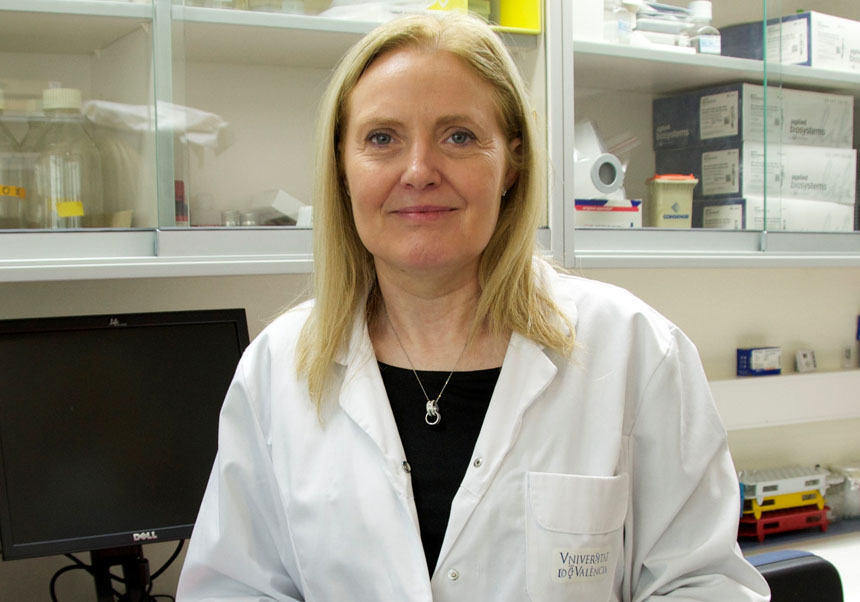
Dolors Corella, professor of the Department of Preventive Medicine and Public Health of the University of Valencia, participates in the European CoDiet project, in which seventeen academic and research institutions from ten countries participate and which will test innovative diet monitoring technologies to improve understanding the relationship between food consumption and common diseases such as heart disease, diabetes, obesity and cancer. The project will use this knowledge to develop artificial intelligence tools that offer personalized nutritional advice to prevent these diseases.
“The coDiet project will be very important for improving the measurement of diet in nutritional studies. It incorporates new devices for capturing images of the food consumed, as well as computational algorithms to analyse them with greater validity and precision, which overcomes the current limitation of these studies. At the same time, the measurement of various omics (genomics, epigenomics, metabolomics, exposomics and metagenomics) will be integrated for the investigation of new biomarkers of interest in precision nutrition”, indicated Dolors Corella.
The research group of the professor from the University of Valencia has a long history in nutritional genomics and her contribution to the project is her previous experience of more than 20 years in which she has proposed new methodologies to improve instruments, measurements and data analysis. in precision nutrition. Specifically, her group participates in the coDiet pilot study, in the subsequent international clinical trial, in addition to performing the integrated multiomic analyses of the participants.
The study is coordinated in Spain by AZTI (www.azti.es), a scientific and technological centre specialised in the marine environment and food that develops high-impact transformation projects with organizations aligned with the United Nations SDG 2030. CoDiet will study the relationship between diet and non-communicable diseases (NCDs) by testing innovative monitoring technologies, such as wearable smart cameras, and developing artificial intelligence tools to provide personalised nutritional advice.
Unhealthy diets are associated with metabolic changes and an increased risk of NCDs, such as heart disease, diabetes, obesity, and cancer. According to the World Health Organization, NCDs kill 41 million people each year, which is equivalent to 74% of all deaths in the world. However, little is known about the mechanisms linking nutrition and NCDs, and current tools used to collect information on nutritional habits rely on questionnaires, which can be unreliable. There is also a lack of data for vulnerable groups, such as those of low socioeconomic status, where NCDs are often overrepresented.
The project builds on previous research at Imperial College London, including the development of a wearable smart camera and personalised nutrition. The camera is one of the dietary data collection tools that the project will test. The camera is designed to be placed in the ear and passively record what the user eats; It will use novel computer vision and deep learning techniques to automatically recognise food types and estimate portion sizes. This will be combined with other technologies to help us understand how food is processed in the body, including analysis of the gut microbiome and urine metabolites.
The project will also develop a tool that will simulate the change in NCDs in response to diet at the population level, with the aim of promoting the adoption of diets that protect against the occurrence of NCDs. At present, efforts to address these problems at the population level are based on a “one size fits all” approach, and it is hoped that personalised nutritional counseling may give more effective results.
In the words of Itziar Tueros, principal investigator and head of AZTI’s Food and Health Department: “It has been shown that each person’s metabolic response to the same diet is different. CoDiet will work on personalisation of nutritional advice rather than the ‘one size fits all’ approach.
In addition to researchers from AZTI and the University, the following institutions participate in the project: Czech Technical University (Czech Republic), Teagasc – Agriculture and Food Development Authority (Ireland), Aristotle University of Thessaloniki (Greece), Technion – Israel Institute of Technology (Israel), CIC bioGUNE (Spain), National and Kapodistrian University of Athens (Greece), Bruker Biospin (Germany), Microcaya (Spain), Sciensano (Belgium), University of Trento (Italy), Biomedical Research Centre Consortium in Red (CIBER) (Spain), Istituto Superiore di Sanità (Italy), National Institute for Health Development (Estonia), Imperial College London (United Kingdom) and University of Leicester (United Kingdom). The CoDiet project is funded by the European Union under grant number 101084642 from Horizon Europe.
More information on CoDiet at www.codiet.eu.











